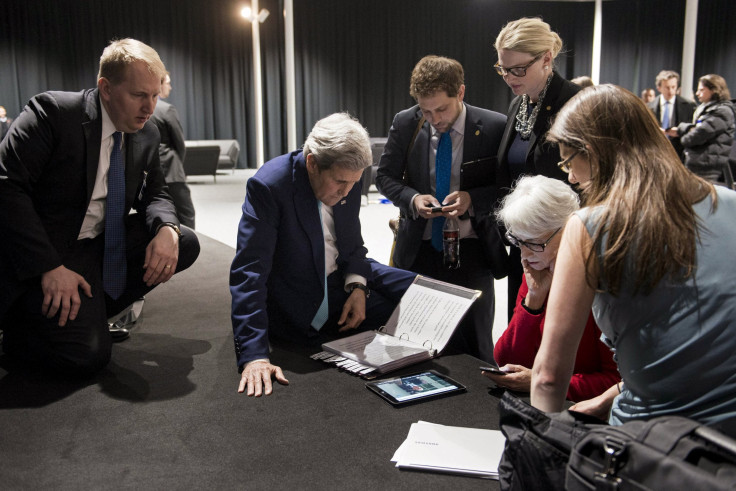Obama’s Plan To Extend Civil Nuclear Deal With China Raises Proliferation Concerns

President Barack Obama’s plan to renew a nuclear cooperation agreement with China has sparked off fresh concerns of nuclear proliferation. Coming as it does in the wake of the curbs sought by the U.S on Iran's nuclear program, it is likely that Congress will engage in some tough posturing against Obama's call. The U.S.-China civil nuclear deal was signed in 1985 and is set to expire at the end of 2015.
The president, in his note, said that extending the agreement would provide "a comprehensive framework for peaceful nuclear cooperation with China based on mutual commitment to nuclear nonproliferation." The administration also appointed a team of five officials to brief members of the congressional panels on foreign relations, nuclear nonproliferation, international security, overseas trade and nuclear safety.
While the U.S. sees a market opportunity for building reactors in China, the criticism is that China will make use of the renewed pact to procure new technology to reprocess plutonium from spent fuel. It also may access coolant technology for reactors that could be used to make its submarines quieter and undetectable.
The nuclear pact with China was the source of several previous turbulent periods. It came into being before the safeguards by the International Atomic Energy Agency were enacted in 1989. The U.S. Congress also imposed many restrictions on China after the 1989 crackdown on civil protesters in Beijing's Tiananmen Square. Finally, President Bill Clinton waived the curbs in 1998.
There is some anxiety in the Obama administration that the renewal of nuclear deal may alarm many members of Congress and may invite its stupendous scrutiny, because nonproliferation experts are wary of China’s growing naval power and hostility. The possibility of sensitive nuclear technology falling into the hands of third parties inimical to the U.S interests is also feared. It is possible that the agreement will be extended unless otherwise annulled by Congress by way of votes to block the agreement altogether or not taking any action during the review period.
The notification to the Congress came early because there has to be a notice period of 90 legislative days before the agreement expires. “We are just beginning what will be a robust review process,” Senate Foreign Relations Committee Chairman Bob Corker told the Washington Post in an e-mail. “These agreements can be valuable tools for furthering U.S. interests, but they must support, not undermine, our nation’s critical nonproliferation objectives,” he added.
Meanwhile, the U.S. security and nuclear energy officials briefed key lawmakers in Washington on May 11 about the proposed extension of the nuclear cooperation deal with China, VOA News reported. Similar to this deal with China, the U.S. already got nuclear power deals running with 21 other countries, including Taiwan.
For feedback/comments, contact the writer at k.kumar@ibtimes.com.au.
© Copyright IBTimes 2024. All rights reserved.





















